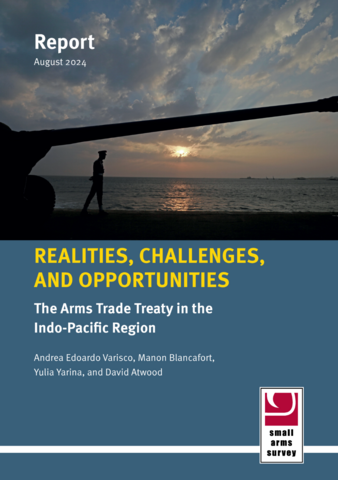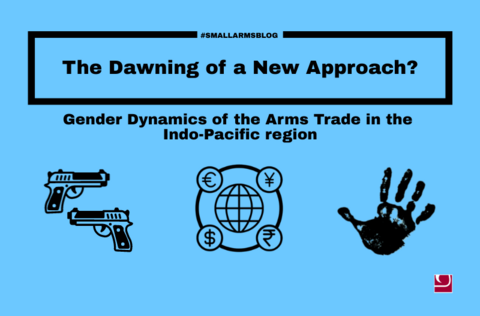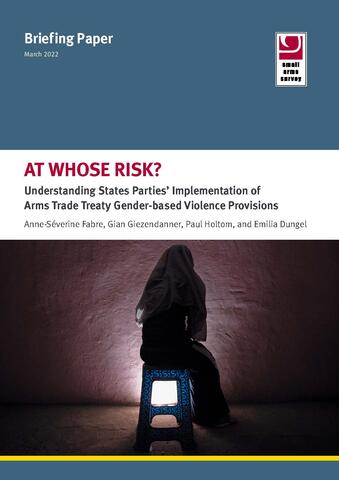The vast and diverse Indo-Pacific region presents an array of interlinked security challenges, including a persistence of armed conflict, transnational organized crime, and the need to enforce international sanctions against countries like North Korea. According to SIPRI Trends in International Arms Transfers 2022, 6 out of the 25 top arms exporters are located in the region, as well as 17 of the 40 largest arms importers. In this environment, only 11 out of 40 Indo-Pacific countries are state parties to the ATT, which limits attempts to prevent, curb, or regulate conventional arms proliferation across the region.
The project investigates factors and challenges behind this reality, with the goal of informing efforts by Indo-Pacific region states to move towards full membership of the ATT and to strengthen national implementation processes. It entails a series of inter-connected activities:
- Desk research analysing open-source information on the licit and illicit trade of conventional arms in the region.
- A study of challenges and obstacles to the ratification of the ATT by signatory states and accession to the ATT by current non-member states.
- Engagement sessions and key informant interviews with representatives of states in the Indo-Pacific region, regional subject matter experts, and civil society organizations, to provide qualitative feedback, as well as contribute to the identification of policy and programmatic entry points.
- Additional dissemination efforts with a range of regional actors, to strengthen understanding of inhibiting factors in the Indo-Pacific region and to broaden the basis for support of identified entry points and opportunities for change.
Through its various activities, the project will provide:
- increased access to updated knowledge and awareness by key actors on recent developments in conventional arms trade in the Indo-Pacific region, including the state of ratification, accession, and implementation of the ATT;
- increased access to updated knowledge by key actors on possible entry points and approaches to strengthen policy engagement by states in the Indo-Pacific region towards ATT universalization and compliance; and
- increased knowledge and understanding by institutions and key actors on leveraging Article 7.4 of the ATT to mitigate the risk of arms-related gender-based violence and violence against women and children in the specific contexts of the Indo-Pacific Region.
This project will increase the engagement of key actors and states working towards universalization and effective implementation of the Arms Trade Treaty in the Indo-Pacific region. Improving knowledge and understanding of the current challenges and main obstacles to Treaty universalization and implementation in the region will provide a baseline for identifying future engagement strategies in the region and inform efforts of states to move towards full ATT membership. Ultimately, this project will contribute to increasing the number of states parties to the ATT and strengthen compliance with Treaty obligations in the Indo-Pacific.
The project's outputs so far include:
- Blog post The Dawning of a New Approach? Gender Dynamics of the Arms Trade in the Indo-Pacific region (July 2024) available in Cambodian, English, Nepali, and Thai.
- Report Realities, Challenges, and Opportunities: The Arms Trade Treaty in the Indo-Pacific region (August 2024) available in Bahasa and English;
- Summary Report of Realities, Challenges, and Opportunities: The Arms Trade Treaty in the Indo-Pacific region available in English, Malay, and Thai;
- Policy Brief No.203: Arms Control in the Indo-Pacific Region: What Role for the Arms Trade Treaty?; and
- Japanese translation of the At Whose Risk Briefing Paper.
For further information on the project, please contact:
Alizee Henry |






